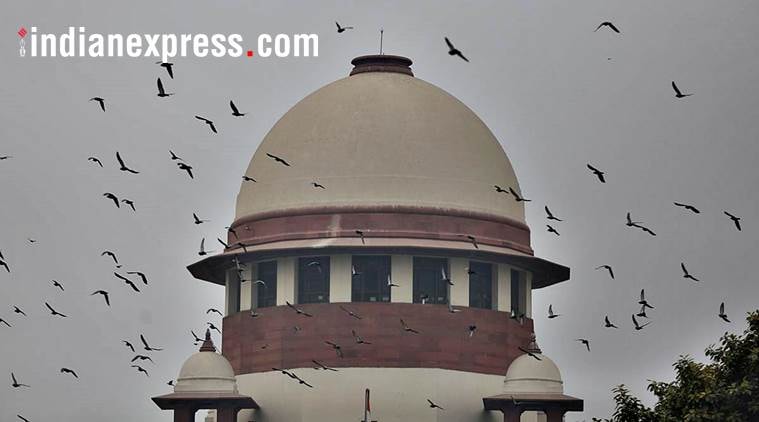 The Supreme Court was hearing at least three petitions including some PILs challenging the practices of polygamy and nikah halala on various grounds including that they violate Right to Equality and gender justice.
The Supreme Court was hearing at least three petitions including some PILs challenging the practices of polygamy and nikah halala on various grounds including that they violate Right to Equality and gender justice.
The Supreme Court on Monday agreed to examine the constitutional validity of the prevalent practices of polygamy and ‘nikah halala’ among Muslims and sought responses from the Centre and the Law Commission. The apex court also referred the matter to the constitution bench.
While polygamy allows a Muslim man to have four wives, ‘nikah halala’ deals with the process in which a Muslim woman has to marry another person and get divorced from him before being allowed to marry her divorcee husband again.
The three-judge bench, comprising CJI Dipak Misra and Justices AM Khanwilkar and DY Chandrachud, took note that the previous five-judge bench had kept open issues of polygamy and ‘nikah halala’ while abolishing triple talaq.
By a majority of 3:2, a five-judge constitution bench had earlier last year held triple talaq as unconstitutional.
READ | In 3-2 verdict, SC walks fine line, strikes down instant triple talaq
The bench was hearing at least three petitions including some PILs challenging the practices of polygamy and nikah halala on various grounds including that they violate Right to Equality and gender justice. In one of the petitions moved March 14 to the apex court, a woman, who claimed to be a victim of such practices, contended that the Muslim personal law rendered Section 494 (marrying again during the lifetime of husband or wife) of the IPC inapplicable to Muslims and no married woman from the community can file a complaint against her husband over bigamy.
“This is in blatant contravention of Articles 14 (equality before law), 15 (prohibition of discrimination on grounds of religion, race, caste, sex or place of birth) and 21 (right to life and personal liberty) of the Constitution,” the petition filed through BJP leader and advocate Ashwani Kumar Dubey said.
“The practice of polygamy is neither harmonious with the modern principles of human rights and gender equality, nor an integral part of Islamic faith,” the plea said.
(With PTI inputs)